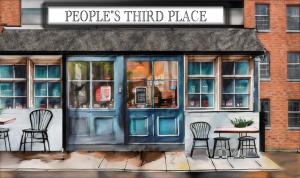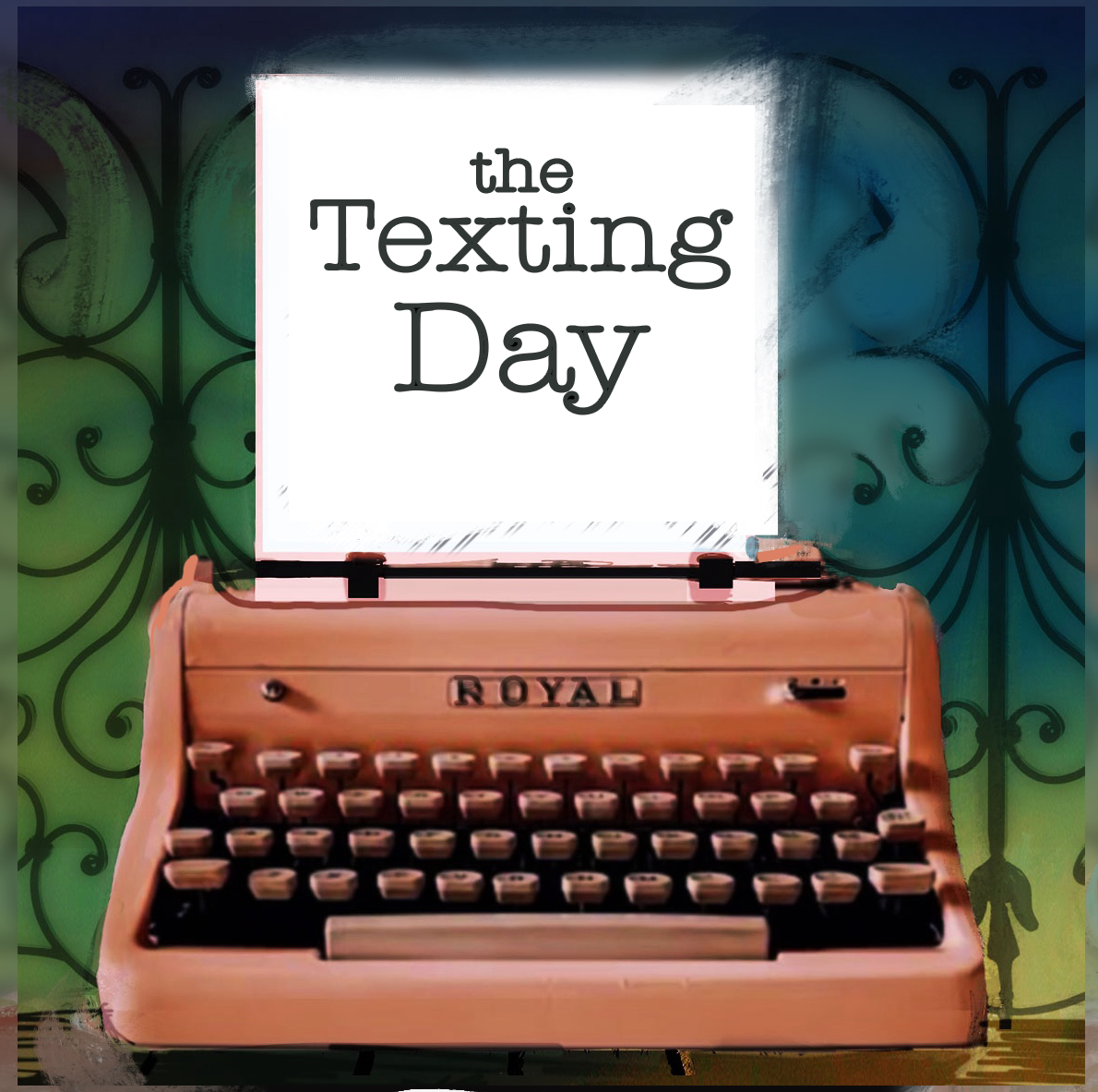 I once heard of a coffee shop that branded itself this way: People’s Third Place.
I once heard of a coffee shop that branded itself this way: People’s Third Place.
They chose a name based on the premise that we all have
1) A Workplace
&
2) A Home.
& 3.______________________________________???
You see, the owners banked on the hope that people also crave a third place. The third place is safe. It is crowded with a few good people that have worked contemplatively on living in reality. If all goes to plan, soon after trauma, you would wiggle your way in to your third place and take a seat where you know you belong.
WHAT IS YOUR THIRD PLACE for everyday needs?
WHAT IS YOUR THIRD PLACE for trauma recovery?
HINT: usually the answers are names connected to places.
Frances Weller, in The Wild Edge of Sorrow calls this type of place a Sudden Village. Since I live in a city with dozens of pop-up stores, my first idea, when I read his description, was to rename the Sudden village, the “Pop-up Village.”
POP-UP VILLAGE DEFINED
For a time such as this we let others embody FOR US what it means to let go of distorted beliefs that were introduced at the time of trauma. We let others embody for us the good news that our story is much larger than the trauma. We make sure this pop-up village is populated with wise folks that practice listening with empathic words and attunement to trauma.
One hard fact is this: You are the initiator of the pop up Village. You will have to find your people.
WHY? You are the only one that holds the map of the devastated country.
WHY IT IS HARD TO INITIATE?
It is hard because we hate our weakness. It is hard because we stop ourselves from reaching for the thing that we need to keep us alive. Most people I meet know their way around severe messages. They expect austere coldness or pointless messages of toxic positivity. They expect to hear, “Try Harder!”
It is awful, but it is how people speak. Often people tell me how deeply uncomfortable they feel enlisting others to show up and take part in their village.
I know it is hard. But, that doesn’t make it less urgent. In trauma a time delay works against your recovery. There is no time to waste. It is important to be proactive about finding your grace-filled and attentive triage team.
It is hard.
But do IT.
When we let others sit in silence with us on the mourner’s bench— the work of healing begins. When we let others see that we wear a literal or figurative black arm band of the mourner we are on a life-giving path. NOTE: If they are the right kind of listeners they will let you know, “It takes the time it takes.”
THE TEXTING DAY
Imagine with me that you forego the creation of a village. You do the “work” by reading on-line content and listening to podcasts. (Kinda like we did during the Covid-19 quarantine.)
You post some of your needs as updates and you look occasionally for a “like” and a comment or two. I believe this TEXTING DAY is starving not savoring. It lacks an embodied presence. A witness —in person— to hear you and advocate for your healing.
THE COMPLEX PROMISE CEREMONY
This is most clearly seen in the service of baptism at my church. There are four dates in the year that the sacrament is to be lived out. In the Episcopal church, the service begins with thirty or forty people going up to the alter area. Three or four babies are dressed up and wiggling. In time the baptism liturgy begins. This is where you see the perfect example of a pop-up village. Standing within a tight space there is a celebrant, the candidate, the parents, godparents, grandparents, and two sponsors for the candidate. The service is full of embodied laughter, the sound of water, the joy and the solemnity of saying five promises out loud before others. After the parents respond, the congregation is asked, “Will you, who witness these vows, do all in your power to support _____________in their life in Christ?” Then the child or adult hears a chorus of voices say over them, “WE WILL, with God’s help.”
Can you see how the service has all of the ingredients of a Pop-up village? It bears witness. It is a ritual. It marks a new identity. It is generational. I love the words about it in the liturgy. It says that the sacrament builds a bond that is indissoluble.
IT IS THE SAME FOR TRAUMA:
It is going to take that level of support, context, promise, and embodied relationship to make it through your transition from feeling isolated in your struggle to feeling settled on the inside. From trauma victim to trauma survivor.
Now, imagine that for all time the Episcopal church stopped the sacrament of communal baptisms. No sense of a tribe that knows your story over many years, no more echo of voices are heard from the pews when the pop-up village promises to support you. You don’t see elders and parents and others taking you seriously. No one lifts you up above the assembled adults (a practice with infants) to the cheers of the congregation. Instead, your ceremony is an update on Instagram. You are listed with five others along with the possibility of a “Like” button being depressed.
WHY THIS CAN’T GET THE JOB DONE
For healing to unfold, your advocacy plans need to match the complexity of your trauma. Both are multi-layered and unique depending on the the trauma endured. Healing takes the time it takes. I believe the sequence of your healing needs to be navigated, named, and honored by advocates. To be enduring and sustained, there must be a crowd standing with you. It may take candlelight and promises to hear with your own ears. It always includes words powerful enough to deflect shame, and these words may need to be repeated many times as you tell the situation and impact of your trauma.
As I said earlier, EVERYONE DESERVES A TALKING DAY. I implore you to give yourself the fullness of embodied witness. YOU DESERVE MORE THAN A TEXTING DAY.
You deserve a symphony of voices mirroring supportive message to you about what happened to you.
ON a TEXTING DAY all you receive is the predictable ding of one keystroke on a computer keyboard.
While it is obvious that you can learn facts online, trauma occurs in isolation and is healed in community. It is true, regardless of the understanding you gain in books or on the web, that you will need a Pop-up Village to surround you with love and support. So, instead of postponing the construction of your village, I recommend that you start laying the foundation one friend at a time now in preparation for the day that the storm arrives. Start there.
Start Here– Call your Third Place People if it is your turn to walk through a storm. If your equilibrium is being tested today, run– don’t walk to be with an advocate for your story.
| not assigned | 1 | listening corner |
